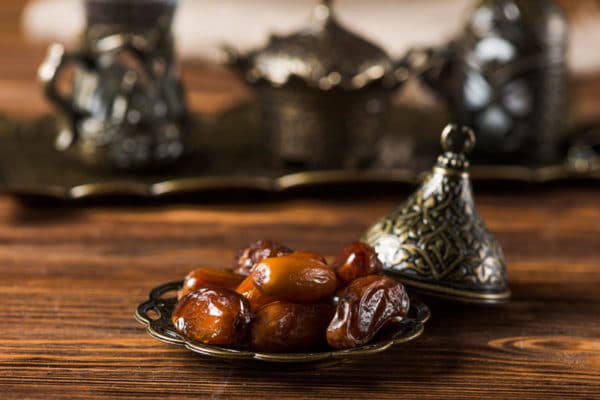
RAMADAN AN OPPORTUNITY TO TRANSFER INTO A HEALTHY DIET PATTERN
Among the great virtues that Allah gave to us during Holy Ramadan, that it is not only manifested in the spiritual aspects and worship acts, but it also has excellent benefits for the human body regarding regenerating the cells and stimulating the different body organs. Fasting relieves the body from waste and toxins accumulated inside the body, and improve the levels of lipids and restores balance to body functions. We concentrate on a lot of topics about the great importance that the healthy diet held, and its role in preserving the body and the prevention of many diseases; therefore Ramadan is the perfect opportunity to seek for changing our diet to a healthy pattern, benefit from reducing lipids and be accustomed to eating healthy foods.
The importance of Sohoor Meal
Starting with Sohoor meal, it is a very important meal for its role in providing the body with the necessary energy the faster need during fasting period, therefore, it is preferable to delay the Sohoor meal as the Prophet peace be upon him urged us to do, so the faster starts his day with enough energy to perform his daily actions and activities. It is recommended that the faster eat date or ripe date to provide the body with energy and eat some yogurt or sour milk because it helps the body in the digestion process and taking benefit from the rest of the food.
The perfect dish is a dish divided into four parts of food types
During Iftar, it is recommended to divide your meal into two stages. In the fast stage eat some dates and drink some water, then go for praying. This small snack will help your body to restore quickly its activity and remove the feeling of hunger and thirst and regulates the blood sugar. In the second stage try as much as possible to divide your dish into four equal parts, the first quarter contains carbohydrates such as whole grains, potatoes, rice, bread, pasta; the second part contains proteins such as chicken, eggs, dairy products, beef, beans; The last remaining portion contains salads and green leaf vegetables such as Rocca and lettuce plus a good share of fruits. Also, try to avoid consuming too much sweets, pastries and fried foods, which provide the body with higher calories than needed and cause the feeling of indolence after eating, and during fasting will cause fatigue and tiredness, increase the feel of thirst, and not to forget its role on accumulating fat in the body and causing obesity.
Consume fluids moderately between Iftar and Suhoor
It is well known that the faster feels very thirsty, and a lot of fasters try to compensate this feeling of thirst by consuming too many fluids during Iftar meal, which leaves no space for eating food and cause indigestion and other digestion problems. Hence, it is preferable to absorb water and liquids between Iftar and Sohoor in small amounts and at intervals. Also, do not drink cold fluids to avoid gripes and cramps in the stomach wall and muscles, or drinking boiling liquids as it causes digestion problems. It is preferable to avoid drinking soft drinks with Iftar or Sohoor meals because it limits the digestion efficiency and contains a significant amount of sugar and its impact on gaining weight. Regarding drinking coffee and tea or other caffeinated beverages, we recommend not to drink them immediately after Iftar because it reduces the absorption of iron and calcium and thus reduces the value of the healthy food taken during Iftar.
Physical activity during Ramadan
A lot of fasters try to avoid the feeling of hunger and thirst through sleeping, especially at hot weather which causes laziness, and this cause lack of physical activity, and in turn the body does not benefit from fasting all day. Physical activity is significant to the human body all year long, and it takes greater importance during Ramadan as when it is combined with the feeling of thirst and hunger it motivates the body to eliminate the accumulated toxins and reduce the lipid amount which is the desired good end of fasting.




